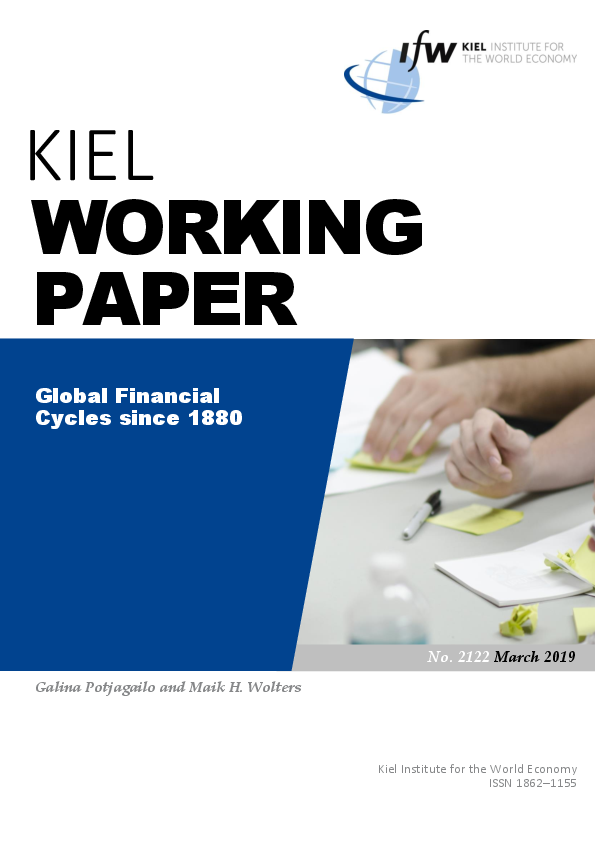Autoren
Erscheinungsdatum
JEL Classification
Schlagworte
Internationale Finanzen
Globalisierung
Wirtschafts- & Finanzkrisen
We analyze cyclical co-movement in credit, house prices, equity prices, and long-term interest rates across 17 advanced economies. Using a time-varying multi-level dynamic factor model and more than 130 years of data, we analyze the dynamics of co-movement at different levels of aggregation and compare recent developments to earlier episodes such as the early era of financial globalization from 1880 to 1913 and the Great Depression. We find that joint global dynamics across various financial quantities and prices as well as variable-specific global co-movements are important to explain fluctuations in the data. From a historical perspective, global co-movement in financial variables is not a new phenomenon, but its importance has increased for some variables since the 1980s. For equity prices, global cycles play currently a historically unprecedented role, explaining more than half of the fluctuations in the data. Global cycles in credit and housing have become much more pronounced and longer, but their importance in explaining dynamics has only increased for some economies including the US, the UK and Nordic European countries. We also include GDP in the analysis and find an increasing role for a global business cycle. %We observe global linkages between financial variables and GDP, but the role of these in explaining the data is rather small and their importance has not increased in recent years.





